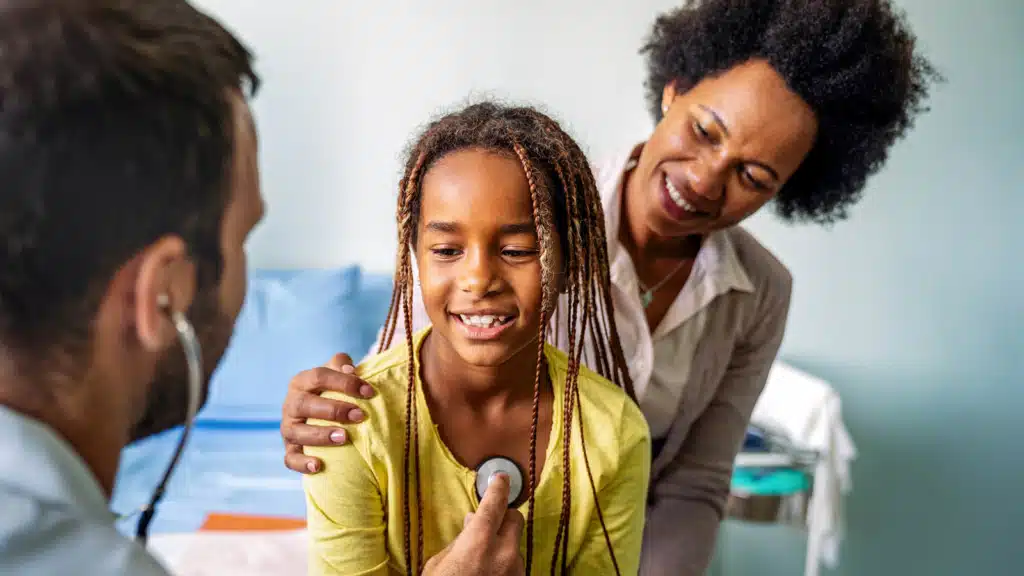 go back
go back
 go back
go back
Please note: Asthma patients’ reactions to COVID-19 are always changing, which is why it’s important to talk to your doctor about your symptoms and health history so they can make a good treatment plan.
While COVID-19 has impacted millions of people across the world, those living with asthma have been especially weary of this disease. Much like asthma symptoms, the severity of COVID-19 often ranges from person to person.
COVID-19 has been part of our everyday lives for the past several years, but medical providers and researchers are continuing to learn more about the virus and its impact on those who’ve had it. As always, it’s best to contact your medical provider if you have questions about your well-being and asthma treatment after having an illness such as COVID-19.
Here’s what you need to know about asthma after COVID-19, including risk factors and complications.
Treatment for Asthma After COVID-19
From a high level, there are three specific things you should do if you live with asthma and you’ve recently had COVID-19.
- Continue your asthma treatment plan. But keep in mind that your doctor might want to adjust your current plan, depending on your symptoms. They might suggest a short-term plan that includes a steroid or a medication adjustment.
- Reach out to your doctor. Even if you haven’t experienced worsening asthma symptoms, you should still consider reaching out to your doctor. This communication could be a phone call to their office or a quick message through their portal system. Having your recent bout with COVID-19 documented can help your doctor connect the dots later should complications arise.
- Be alert for worsening symptoms. Some patients may experience “long COVID,” in which symptoms can last weeks or months after the infection. For example, some patients may experience nausea, which can increase their risk of asthma symptoms.

Does Asthma Get Worse After COVID-19?
It’s possible that having COVID-19 might make you feel worse—especially if you already have trouble breathing. But, at this time, research and studies do not suggest that COVID-19 increases your chance of an asthma attack.
Those with moderate-to-severe or uncontrolled asthma are more likely to be hospitalized from COVID-19, according to the Centers for Disease Control. However, a leading theory is that some of the medication used to treat asthma also helps reduce COVID-induced inflammation.
In fact, it’s possible that the immune response in people who have asthma may have protected them from additional lung damage typically caused by COVID-19, according to Dr. Geoffrey Chupp with the Yale School of Medicine.
Is It Asthma — or Long COVID-19?
You may experience some asthma symptoms after COVID-19. Some of these symptoms can resemble long COVID and vice versa. This makes getting an official diagnosis important in your treatment journey. However, it’s also important to pay attention to your cough. For example, if your normal medication is not alleviating your cough, it could be a sign of long COVID or a post-viral cough.
Asthma symptoms can show up differently in children and elderly patients. It’s important to know risk factors and complications in treating asthma after COVID-19.
Asthma Symptoms in Older Adults
Asthma can be difficult to diagnose in older adults because of the presence of other health conditions. Often, there are several other ailments that have symptoms similar to asthma. Here are some common asthma symptoms in older adults:
- A prolonged cough. This is a cough lasting longer than eight weeks. It might be a sign that a more comprehensive respiratory evaluation is needed.
- Chest tightness or pain.
- Shortness of breath.
- Waking up at night because of asthma symptoms.
Asthma Symptoms in Children
For children, medical providers often use the Asthma Predictive Index (API), a tool developed over 20 years ago to predict the development of asthma in school-age children. Here are some of the most common childhood asthma symptoms:
- Wheezing
- Chest congestion
- Fatigue
- Delayed recovery or the development of bronchitis after a respiratory infection.

What Should I Do If I’m Having Asthma Symptoms After COVID-19?
If you’ve recovered from COVID-19 but are still having asthma symptoms, your medical provider might suggest the following:
- Testing. Your medical provider might check out your lung function through pulmonary function tests or look for inflammation in your airways or blood. This gives your medical provider insight into your condition and what you are experiencing.
- Modified asthma action plan. These tests can help inform your treatment plan to see if it needs to shift for better results.
- Specialized medications. A knowledgeable medical provider can help you find a treatment that might ease your symptoms.
There are also steps you can take to help alleviate asthma triggers after COVID-19:
- Manage your environment. Avoid common allergens such as dust and pollen at work and in your home.
- Stay away from tobacco smoke. Cigarette smoke can irritate your lungs and worsen asthma symptoms. Stop using all tobacco products and vapes, and avoid exposure to secondhand smoke.

Can You Develop Asthma After COVID-19 for the First Time?
Yes, it is possible to develop asthma after COVID-19, even if you’ve never experienced the chronic condition before. Many people with asthma first develop symptoms in childhood. But, sometimes, adults will experience adult-onset asthma symptoms after a viral illness like COVID-19. Thanks to testing, we know that COVID-19 can provoke the presentation of asthma symptoms in someone who did not previously have asthma.
How Long Does Asthma After COVID-19 Last?
If you’re experiencing asthma symptoms for the first time after having COVID-19, you may wonder if it is temporary or a prolonged new normal.
- First, your medical provider will try to establish an understanding of your disease burden.
- They may check your lung function.
- You may be asked about other allergies.
With this information, they can help establish a treatment plan that potentially shifts in follow-up appointments to meet your needs. It’s important to know when an allergic reaction could be an emergency—especially after having COVID-19. Learn more about allergic reactions and how to properly respond to them.

Medically Reviewed By: John Anderson, MD
Reviewed on: Jan. 23, 2023
Our team of writers, editors, and medical experts goes over each article carefully to make sure the information is correct and that only reliable sources are used.
We regularly check to see if the info in this article matches up with the latest scientific research and expert advice so that we can give you the most up-to-date information. See list of trusted resources here.
